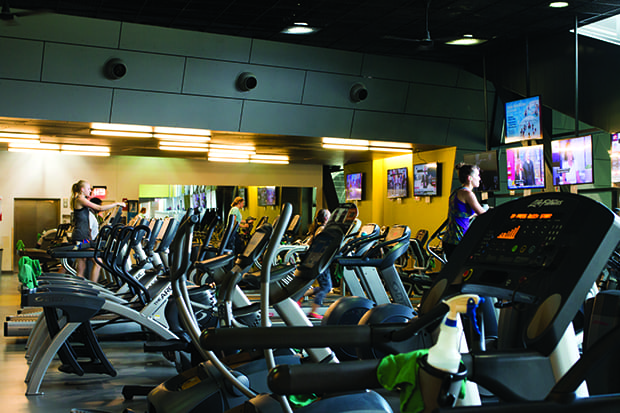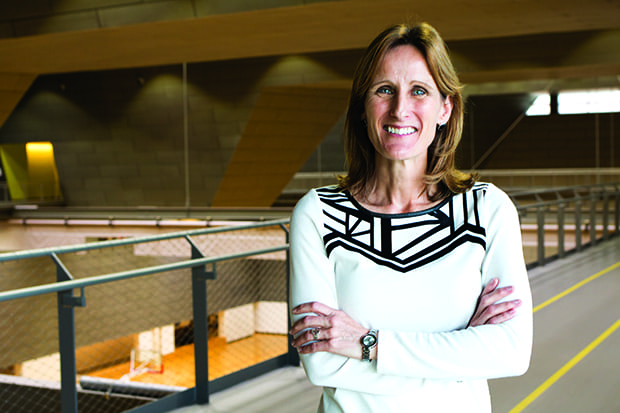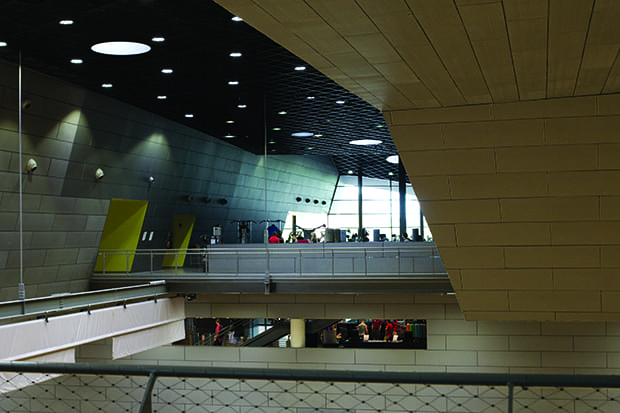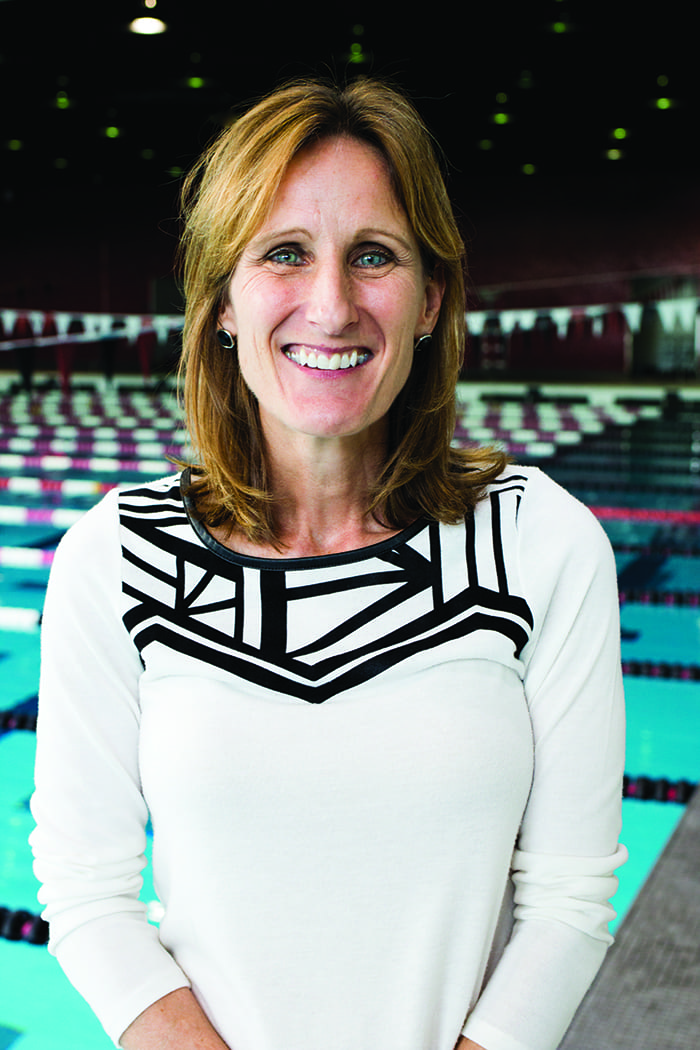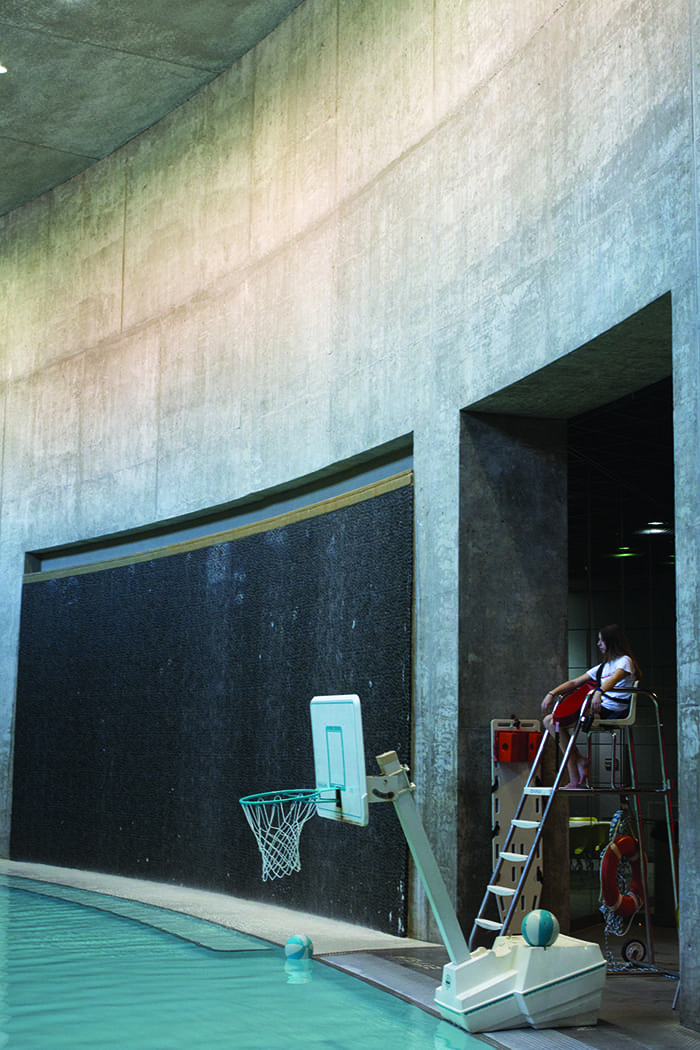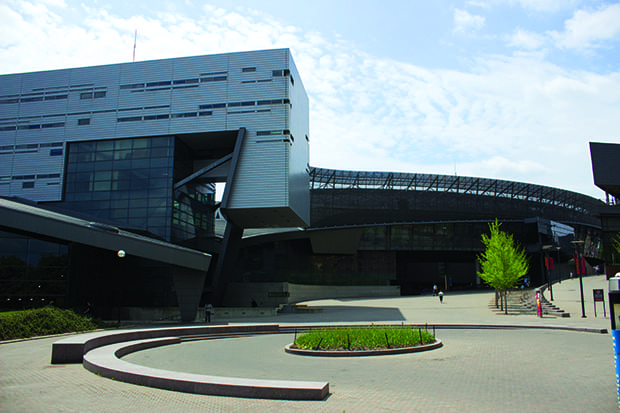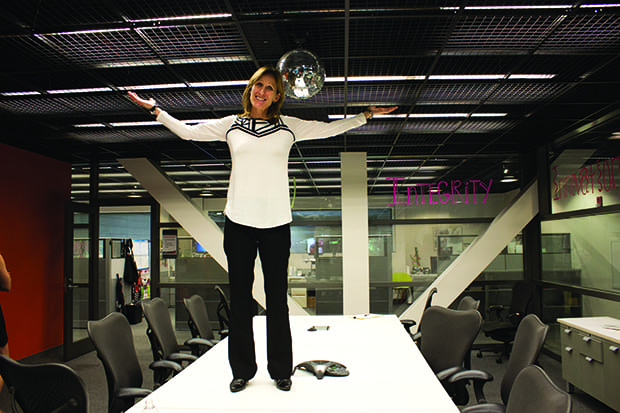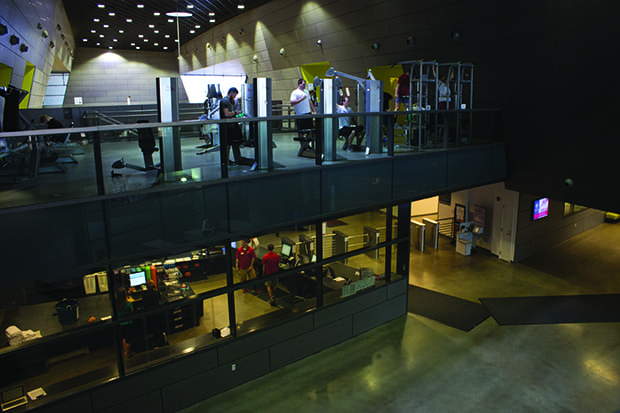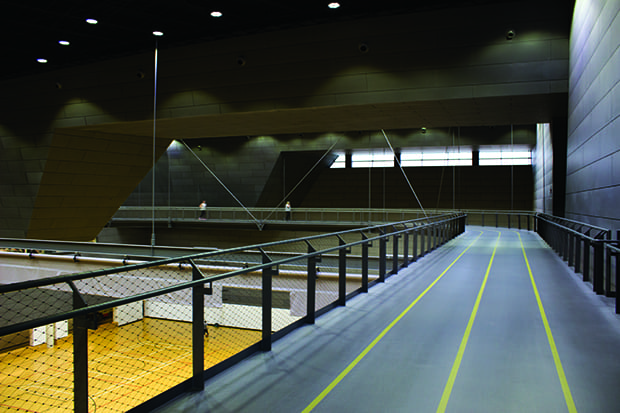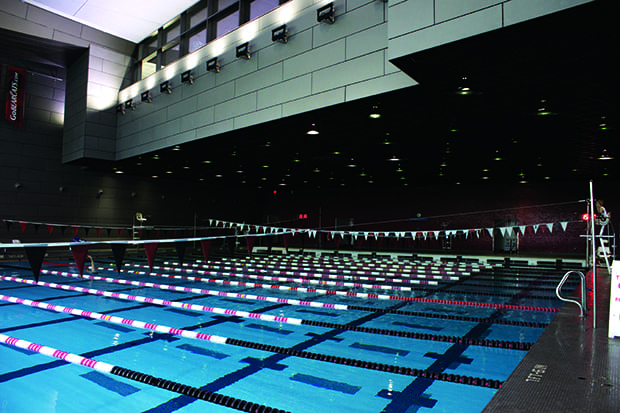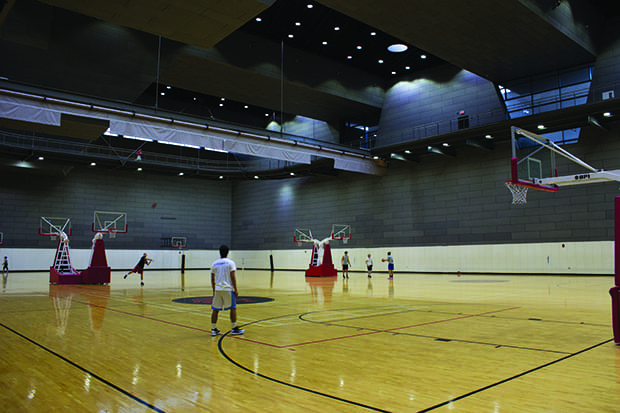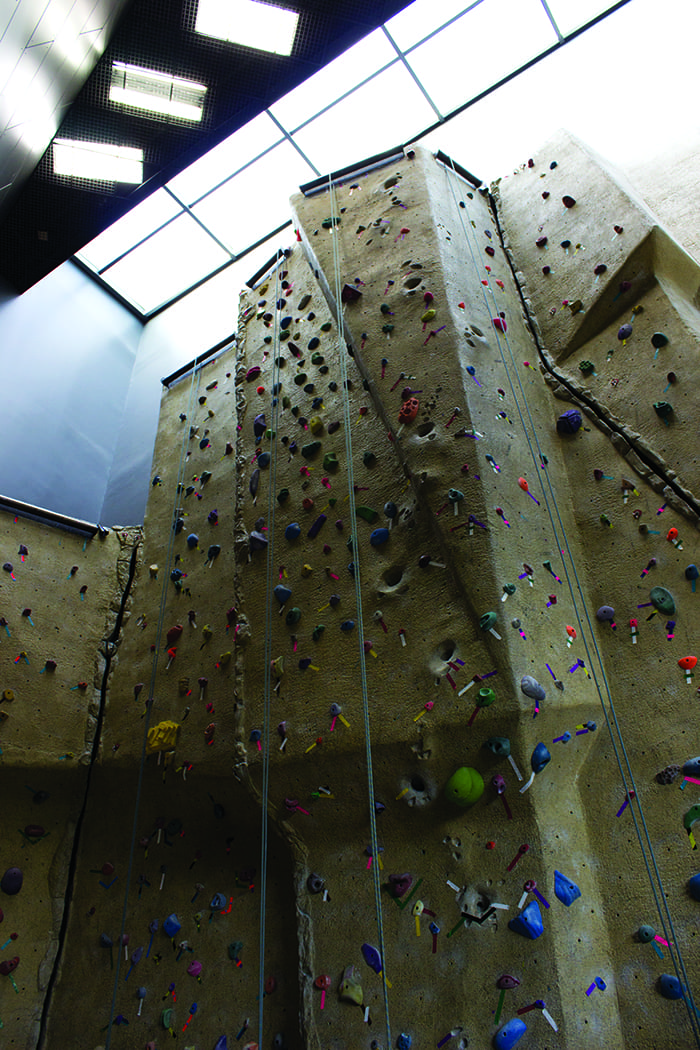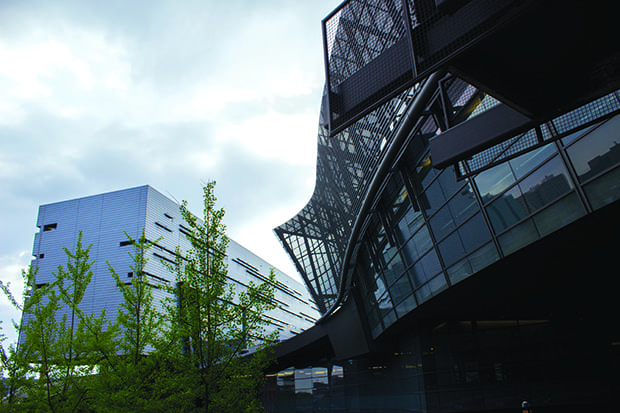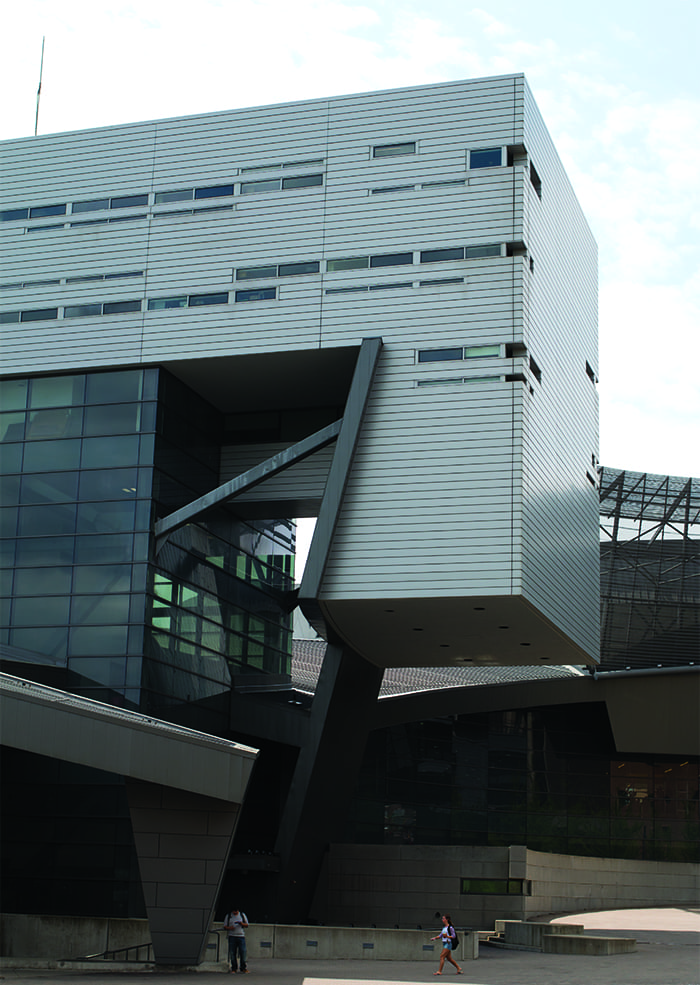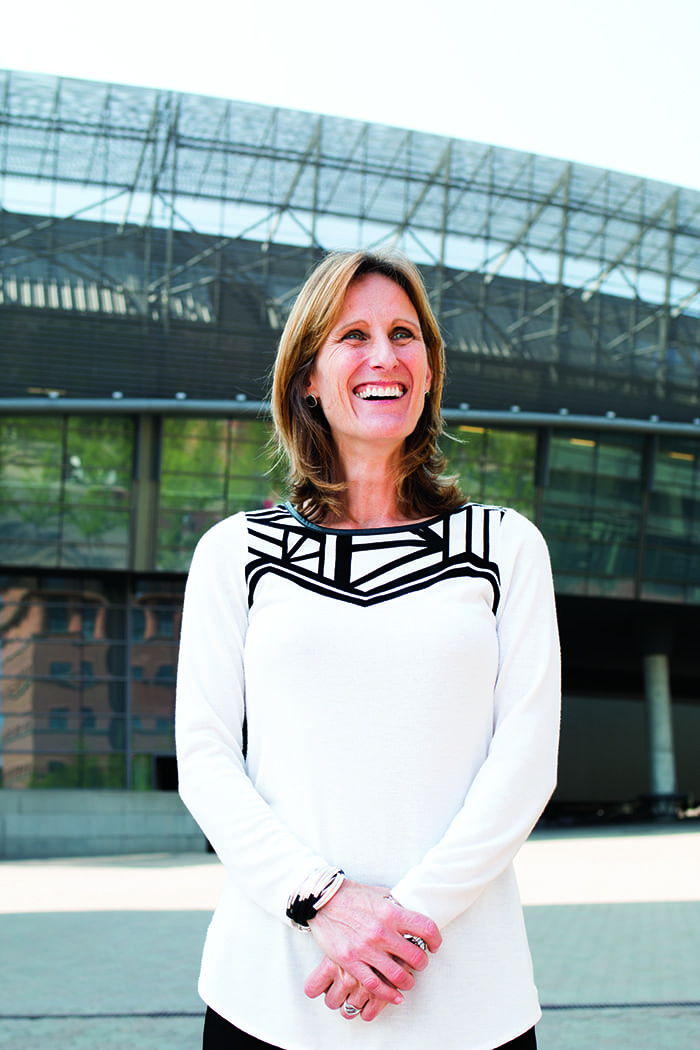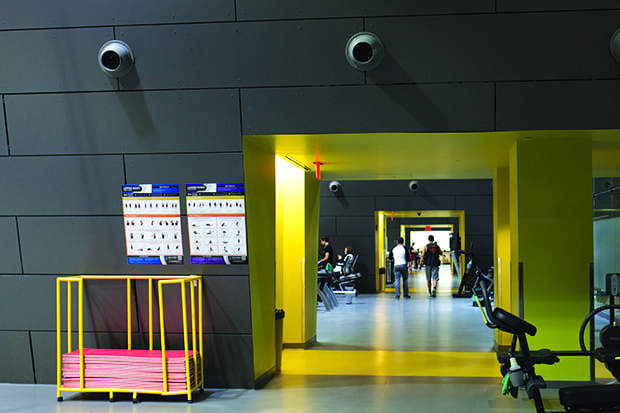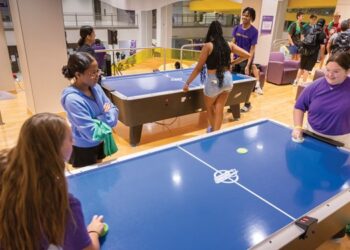It is not every day you see the director of a department hop on to a conference room table, start belting out a tune and dancing for all in the office to see. But for Kim Schmidt, the director of recreation at the University of Cincinnati, this is not a rare occurrence.
“You can dare her to do anything and she will do it,” said Emily Piercey, the associate director for membership and operations. “She always makes sure that people are in a good mood. If that means dancing on a table, then that is what she will do. Sometimes we can get sunk into problems and she has a way of lightening the mood. She reminds us that it is a job, and we are going to get through it.”
Schmidt has spent her entire professional career at the University of Cincinnati, starting as an athletic intern, moving to an administrative coordinator and then landing the role of director of campus recreation. Through her time as director, her vibrant and positive outlook has created an engaging work environment many would envy.
“There is a saying, ‘To whom much is given, much is required,’” said Schmidt. “I’ve always tried to lead with gratitude for having been entrusted with a great deal of responsibility for the staff I work with and the members and guests we serve. I am truly passionate about what we do, and the lives our program impacts.”
It seems that passion is contagious. Five of the 15 professional staff started out as student staff, many of which had no intention of pursuing careers in recreation. However, after spending time with Schmidt at the Campus Recreation Center (CRC), they decided to stick around.
“Kim and the staff did a really good job of creating a family atmosphere,” explained Piercey. “I loved everyone that worked here and everything that I learned. I loved the campus environment and everything about campus recreation. I never fathomed that this could be a career, I just wanted to be here and make my mark any way that I could.”
Working for the Campus Recreation Department at the University of Cincinnati provides staff with many unique opportunities they may not glean working at another recreation department. The four most common locations for collegiate campus recreation programs are student affairs, intercollegiate athletics, academics and business. However, Campus Recreation at UC is aligned with the Division of Administration/Finance and the Department of Campus Services.
“I believe our Campus Recreation Department develops professionals into truly well-rounded, knowledgeable individuals with diverse skill sets,” said Drew Salvador, the assistant director of intramural sports and camps. “All CRC professionals are responsible for marketing, purchasing, human resources, hiring and recruiting, in-depth financial reporting and fiscal responsibility, contracts and much more. The diverse responsibilities allow us to really take ownership and pride in our work. In return, we are more connected — not to just Campus Recreation units, but to both the Campus Services team and the university.”
This opportunity to practice an expanded skill set and an engaging work atmosphere has propelled the Campus Recreation team to new heights. Schmidt highlighted several ways in which she works to create a positive work environment within the Campus Recreation Department at the university.
Hiring the Right People
Creating a great team starts with hiring the right people. Schmidt explained it is essential to hire people who are going to be a good fit within the department. “We are not looking for some kind of assembly line or a group of people who all think alike, because that would be boring and a non-creative work environment,” she said. “Do they get excited about the mission of our department, which is to create the best experience for each individual we serve? We only have five values, so do they buy into those? You want it to be the right environment for them and a place that they enjoy.”
Recognize Everyone is Valuable
If you think about the DNA of every single human, it varies exponentially. We are all extremely different. Each individual brings unique strengths and weaknesses to the team. According to Schmidt, it is essential to recognize that everyone contributes something distinct. “Everyone bring something different to the table, whether it is their experience, their education, their skill set or something else,” explained Schmidt. “Some people are big-picture thinkers; others get down in the details. Some people are very analytical, while others are very creative. You need a really nice blend.”
Celebrate Success
An enormous component of creating an energetic work environment is commending success, no matter how small. It can be easy to get bogged down in the day-to-day monotony of work, and we might forget to celebrate when something good happens. Schmidt said this is a simple way to boost staff morale.
“Every staff meeting, we start off with something we call Bravos,” added Schmidt. “It is an open floor and staff can recognize anyone — another professional, a student staff member or a group of students. It can be anything from they won an award, or they served on a committee, they ran a successful program, or they took on a project that none of us wanted to do. Again it can be anything, but it is just a quick pat on the back so that it is not getting lost.”
Spend QualityTime Together
“We spend a lot of time at work,” said Schmidt. “For me it is really important that we spend time together having fun and that we genuinely like each other. I think you have to be very intentional about that, because it would be very easy to get caught up in meetings and things like that.”
The Campus Recreation Department recently went through a growth period, hiring six new staff and promoting four, meaning 10 out of the 15 professional staff were in new roles. With the extensive change, Schmidt wanted to ensure everyone felt welcome. So once a week, each staff member picks someone different on the team and spends 20 minutes with them.
“I really want the new people to feel like they are part of us,” said Schmidt. “You don’t have to talk about work, but just find out more about them. Tell me about your family? Tell me about your siblings? One of our veteran employees who has been with us for three years was part of a national ‘Got Milk?’ campaign and also had a role on a soap opera, and none of us knew this. Sometimes when you don’t ask the questions, you don’t get the answers and you don’t get to know people.”
Exchange Ideas
Just because you work in the fitness department, that does not mean you shouldn’t know what goes on in the intramural department. Schmidt explained an outstanding way to build camaraderie and teamwork is to encourage employees to temporarily branch outside of their traditional roles. This is yet another way for staff to get to know one another better.
“We ask everyone to go to at least one staff meeting in a different area by the end of the year,” explained Schmidt. “So if you are in aquatics, you need to go to a fitness meeting, wellness meeting, intramural sports meeting, summer camp meeting, member services meeting and so on. The idea is that you get to see another professional and how they run a meeting, but you also get to meet their student leadership team, you get to hear about things that are going well or the challenges they are facing. I think it is one of those things that helps eliminate siloes, and then you feel like you better understand each group.”
Be Flexible
Not everyone can wake up and get their brains working at 8 a.m. Some find that they are more productive later in the evening. According to Schmidt, it is important to be flexible when it comes to scheduling. As long as responsibilities are being met, the hours in which work is being done is not as integral.
“We try to be as flexible as we can,” she said. “So if you have intramural sports training at night and come in at noon, or if your family schedule works that you come in at 6 a.m. — if it meets the needs of the department and you are able to get your work responsibilities done, we are flexible. Or if you are not much of a morning person and you need to come in a little later and it works for us, we let it happen.”
Overall, Schmidt described the Campus Recreation team as resourceful, resilient and responsive, crediting them for the success of the CRC over the past decade. “The difference between success and failure is a great team,” she said. “The accomplishments of the Campus Recreation program will always be a result of the efforts of every professional and student who has been a part of this department. As Phil Jackson said, ‘The strength of the team is each individual member. The strength of each member is the team.’”




